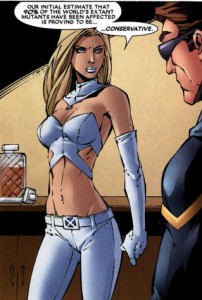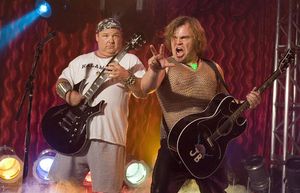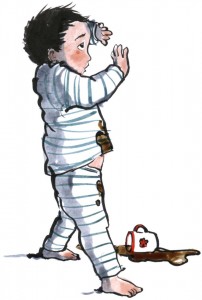Zelda Fichandler’s speech to the Stage Directors and Choreographers society has a couple quotes in it that have gotten me thinking. From reading her speech I can’t tell her exact thoughts on the current state of the regional theatre model, and theatre in America, but here are mine.
The fabric of the thought that propelled us was that theater should stop serving the function of making money, for which it has never been and never will be suited, and start serving the revelation and shaping of the process of living, for which it is uniquely suited, for which it, indeed, exists.
I wholeheartedly agree with this. Yet it seems like regional theatres around the country are targeted more towards that money making model now than ever before. While I understand that economically times are tough for everyone, especially arts organizations, forgetting the purpose is the most disastrous mistake that could be made. While I know it’s a different situation, and that change takes times and habit is learned, we know what kind of theatre can be made for $50, and I think larger scale theatre companies need to begin learning from that. Pay your artists to be creative, don’t pay your shows to look good, the artist needs it more. We’ll get back to this in a moment.
First, we must take our gaze and any preoccupation away, away from Broadway, from which we took our leave many years ago. If they want what we discover, nourish, and perform, that’s okay.
Yet again, Ms. Fichandler, wise words. ART, Huntington even her own Arena, there’s little more to say. The goal shouldn’t be Broadway, the goal should be our audience. Again, it’s about money and publicity, the celebrity of theatre, not the art of it.
Next, a theater institution, in and of itself, is an artwork, a collaborative artwork whose principal artist is the artistic director.
So…interesting. I think this is one problem of the current regional theatre model which is hierarchic and not communal. It’s easiest to put blame on someone else in this model, and even then, sure there’s the artistic director, but then we move into the Board of Directors and the Chairman of the Board and etc etc etc. Responsibility and celebration should be shared. I think this may be one of larger model changes that may happen as the current regional theatre model begins to fall.
The artwork is not truly alive until it meets its audience, so that we absolutely want and must have the audience with us, responding with their imagination and belief. But it is we who choose and create the work. Neither Picasso nor Beethoven asked anyone what they wanted to see or hear. That comes from deep within each individual artist. The artist may be lonely or feel unsure of, or inadequate to, what she is making, but she must cling to her integrity—her wholeness—and see it through. Being an artistic director, like growing old, is not for sissies. And smaller theaters are easier.
Now I think I know what you’re saying, but what it sounds like is a little different. I think you’re saying don’t make art to please your audience. What it sounds like you’re saying at first is, “Fuck them bitches.” If we’re not creating for our audience, then we’re probably creating for ourselves, and that seems wrong. Don’t get me wrong, I believe that if something challenges me, it will challenge my audience, but that’s because my ideal audience at the moment is my peers and I feel that I understand them well. In a sense I am part of them, or at least know most of them. But the work needs to be targeted to change the audience, to move the audience, not simply as an artistic outcry that will have no effect.
New plays are, of course, central to our repertory since they come from the very time of our lives, and funds to produce them are at the moment more available than for other needs. Foundations have their cycles as do styles in fashion. But the world classics must remain alive in the present for our contribution to be complete. We are as we were and always will be, and deep truths about our misplaced love, our lust, our foolishness, cruelties, hunger for power, and dread of death are imbedded in these great plays, which turn their faces to us as the world turns. I so deeply believe this, I can’t imagine myself with a repertory that discards the classics as passé or doesn’t explore how cultures other than our own view the human experience.
This is such a bigger conversation I don’t want to get too deep into it. But let’s just say we don’t necessarily hold the same view on the classics as one another. I think they’re important, but I also think they have the right to die if that’s what needs to happen at any given moment.
If that is so, I ask this question: could it be, in part, that the imaginative scale of our work is bowing to meet the budget’s needs? If so, we must not let it happen that way. We must remember that—within reason, within the outer borders of possibility—the risk must be taken because we are in love with the project
I think, especially at larger regional theatres this is true. Like I said at first, amazing theatre can be made very cheaply. What I see happening more often than not is when you suddenly have a huge budget, imagination goes out the door for spectacle and for the real thing. Of course this isn’t always the case, but often, in my personal experience at least.
I appreciate the regional theatre model. I think it’s done some great things up till now. I also think it needs to change. I think it will change. Like any revolution, there needs to be an inciting incident, and just as broadway money making was part of what fueled Ms. Fichandler, regional theatre money making is part of what will fuel the next generation.


 I don't have an answer, but I can share my confusion. Check out the link I have provided after you read the post. Inevitably, it raises more questions:
I don't have an answer, but I can share my confusion. Check out the link I have provided after you read the post. Inevitably, it raises more questions:
